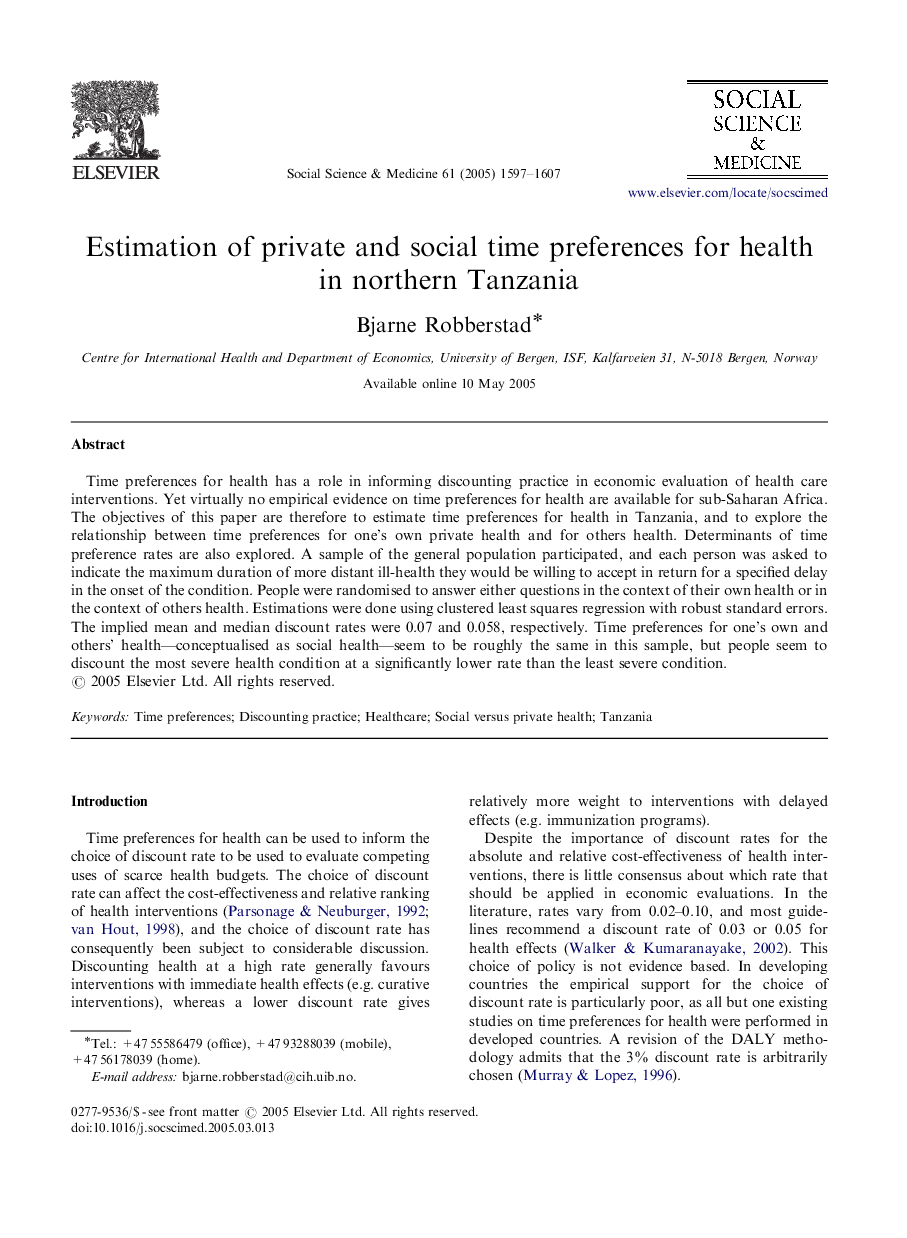| Article ID | Journal | Published Year | Pages | File Type |
|---|---|---|---|---|
| 10472445 | Social Science & Medicine | 2005 | 11 Pages |
Abstract
Time preferences for health has a role in informing discounting practice in economic evaluation of health care interventions. Yet virtually no empirical evidence on time preferences for health are available for sub-Saharan Africa. The objectives of this paper are therefore to estimate time preferences for health in Tanzania, and to explore the relationship between time preferences for one's own private health and for others health. Determinants of time preference rates are also explored. A sample of the general population participated, and each person was asked to indicate the maximum duration of more distant ill-health they would be willing to accept in return for a specified delay in the onset of the condition. People were randomised to answer either questions in the context of their own health or in the context of others health. Estimations were done using clustered least squares regression with robust standard errors. The implied mean and median discount rates were 0.07 and 0.058, respectively. Time preferences for one's own and others' health-conceptualised as social health-seem to be roughly the same in this sample, but people seem to discount the most severe health condition at a significantly lower rate than the least severe condition.
Keywords
Related Topics
Health Sciences
Medicine and Dentistry
Public Health and Health Policy
Authors
Bjarne Robberstad,
